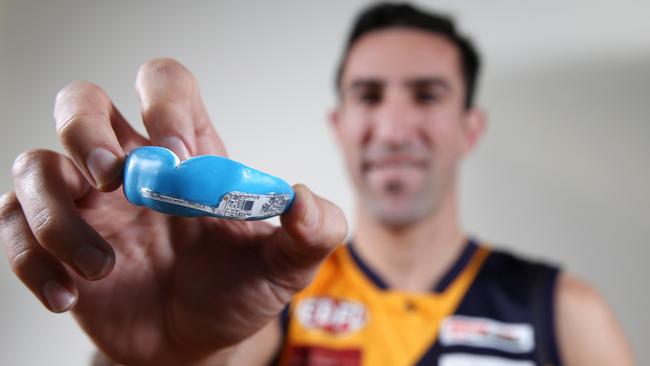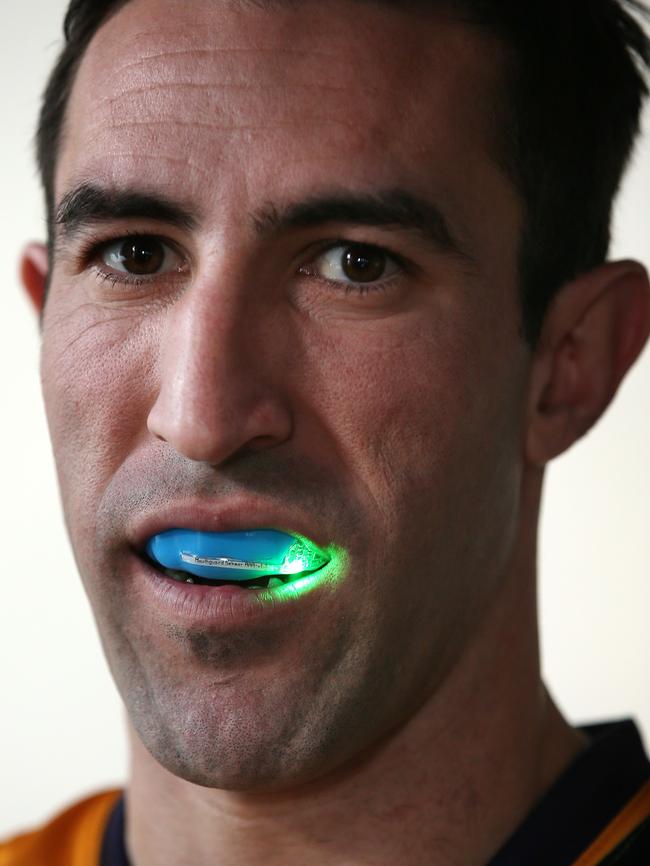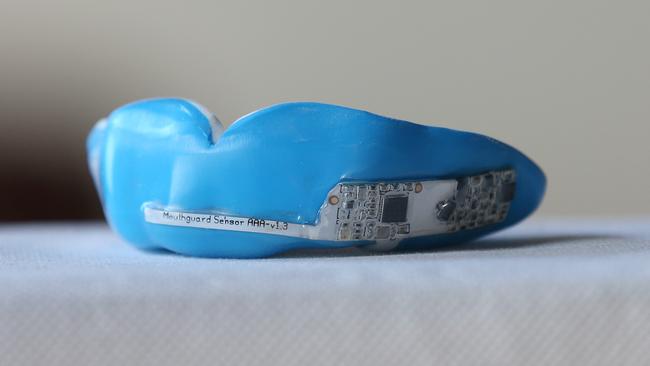Microchipped mouthguard to help doctors improve concussion diagnosis
A RADICAL mouthguard developed in Australia could hold the key to combating career-ending concussions, which remains a major issue around the world.

AFL News
Don't miss out on the headlines from AFL News. Followed categories will be added to My News.
A RADICAL mouthguard fitted with a computer chip has been developed to help combat career-ending concussions.
Australian company Hit IQ last week fitted players from the Strathmore Football Club with guards designed to help doctors improve concussion diagnosis.
FOURTH CONCUSSION: BRAYSHAW KNOCK ‘JUST DREADFUL LUCK’
MOVEMENT SENSORS: AFL PLAYERS IN CUTTING-EDGE TRIAL
“Currently we rely just on observational assessments. Using a mouthguard, because it’s directly connected to the skull through the upper jaw, enables us to measure the force a player receives during a game,” Hit IQ’s Mike Vegar said.

“And by doing that, hopefully medical staff can make more informed decisions. We want to help prolong the playing careers of athletes at all levels, and in a number of sports given concussion is an ever-growing concern.”
Strathmore players, including former North Melbourne defender Michael Firrito, have been wearing the product, known as Nexus A9, as part of a study that aims to measure the intensity, location and direction of concussions.
According to neurophysiologist Dr Alan Pearce, who tested Greg Williams for brain damage in 2013 in a program with 20 AFL players, the mouthguard has far-reaching ramifications.
“Concussion is a clinical diagnosis so having accurate data will be of enormous benefit in making more informed decisions on diagnosing concussion, and protecting the brain long-term,” said Dr Pearce, who is managing the concussion field study in conjunction with La Trobe University.
“Using a mouthguard that is firmly fixed and doesn’t move during the game will be a step forward in our understanding of the invisible injury that is concussion. A successful trial will be a starting point for researchers to be able to make a difference in the community.”
Concussion is a major issue around the world. In America’s National Football League a $1 billion settlement involved 4500 former players is nearing conclusion.

US soccer players under the age of 11 are banned from heading the ball due to concussion risks.
Dr Pearce will monitor results from Strathmore players through this season, with hope that by the beginning of 2018 the product will be available commercially.
Former North Melbourne and Essendon player Nathan Grima, who coaches Strathmore, said his team is happy to be a part of an innovation that could improve the long-term health of players.
“Obviously the welfare of our players is a priority and we hope our involvement in this scientific field study helps all sports where concussion is an issue,” Grima said.


